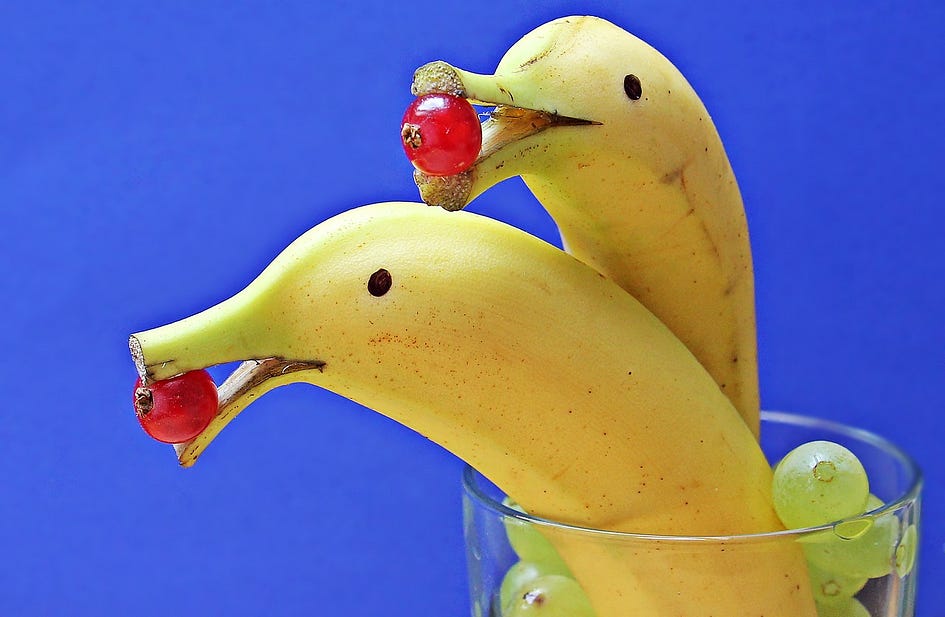
Toutes les bananes sont des clones
 3 min
3 min
Toutes les bananes sont des clones
Les bananes, avec leur saveur délicieuses et leurs propriétés santé, font partie des assiettes de bien des peuples à travers le monde. Mais saviez-vous qu'en fait, toutes les bananes sont des clones d'une seule et même banane originelle?
Hein?
Ce court article se penche sur l'histoire intrigante des bananes et explore les aspects souvent sous-estimés de la manipulation génétique de nos aliments.
Les bananes que nous consommons aujourd'hui proviennent principalement de la variété connue sous le nom de Cavendish.
Avant ça, c'était le gros Michel
Toutefois, à l'origine, la banane la plus populaire était la variété Gros Michel. Malheureusement, dans les années 1950, une épidémie de la maladie de Panama a dévasté les plantations de Gros Michel, rendant cette variété pratiquement inutilisable à grande échelle.
Face à la menace de la maladie, l'industrie bananière a dû trouver une solution rapide pour remplacer la Gros Michel. C'est là que le clonage a joué un rôle crucial. Au lieu de cultiver des bananes à partir de graines, les producteurs ont commencé à reproduire des bananes à l'aide de boutures de rhizomes, créant ainsi des clones génétiques de la variété Cavendish.
Si le clonage a sauvé l'industrie de la banane, il soulève des questions plus générales sur la nature de notre approvisionnement alimentaire moderne. La pratique généralisée du clonage pour répondre à la demande de masse remet en question le caractère naturel de nos aliments. Les bananes que nous consommons ne sont plus un produit de la nature, mais plutôt le résultat d'une manipulation génétique intensive visant à satisfaire nos préférences gustatives et les exigences du marché.

La standardisation génétique qui accompagne le clonage pose également des problèmes en termes de durabilité et de résistance aux maladies. En favorisant une seule variété, l'industrie de la banane risque de compromettre la stabilité de l'approvisionnement alimentaire, ce qui met en évidence les conséquences potentielles des manipulations génétiques à grande échelle.
Bien que les bananes soient des fruits délicieux et largement appréciés, l'histoire de leur clonage met en lumière les compromis et les questions relatives à la manipulation génétique dans notre alimentation. Il est essentiel d'examiner de manière critique la façon dont nos choix alimentaires influencent la nature des produits que nous consommons, remettant en question l'idée même de ce qui est "naturel" dans notre alimentation moderne.









 English
English
 Français
Français
 Deutsch
Deutsch
 Italiano
Italiano
 Español
Español



 Contribuer
Contribuer















 Tu peux soutenir les auteurs qui te tiennent à coeur
Tu peux soutenir les auteurs qui te tiennent à coeur





